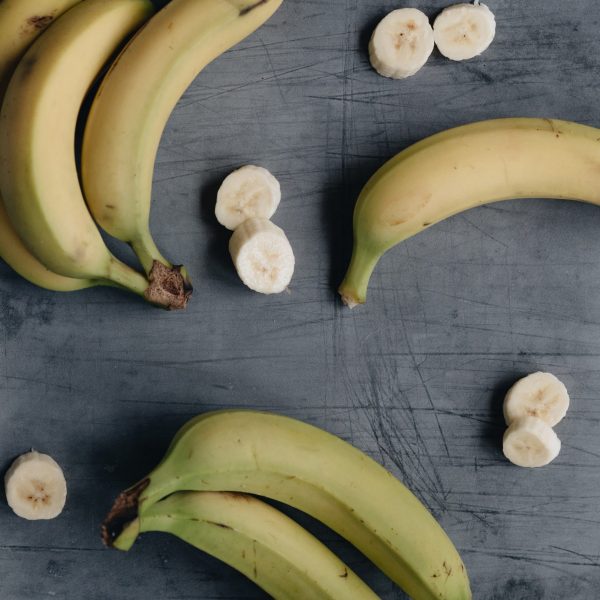Healthy amounts of potassium and sodium are important for many body functions necessary for optimal male fertility health, as well as female fertility health. Let me share with you why and how.
The Connection Between Potassium and Fertility
Potassium is a mineral salt, an essential nutrient, for muscle strength, enzyme activity throughout the body, pH balance, and healthy function of the nerves and cardiovascular system. It helps maintain fluid and electrolyte balance in the body and works with sodium to support healthy cell function. Potassium is also a vital nutrient in seminal fluid or semen (if male factor infertility is a concern for you, consider testing potassium levels).
Potassium deficiency or low potassium is called hypokalemia. Reports share that almost one out of five people hospitalized in the United States alone have a low potassium level – below 3.5 mEq/L. This may include women with ovarian cysts. It is theorized that some ovarian cysts may be a result of potassium deficiency. There are reports that women ages 30-39 have self-reported to the US Food and Drug Administration (FDA) that they have taken the birth control pill, experienced ovarian cysts, and have been found to have low potassium levels.
The current recommended dietary intake of potassium is 4,700 milligrams daily, best obtained through one’s diet. Potassium supplements beyond what may be included in a whole food multivitamin aren’t often suggested without a doctor’s guidance.
Even if one consumes the RDI of 4,700mg daily, deficiency is still possible. The reason why is because the more sodium consumed, the more potassium the body excretes. People who over-exercise or sweat profusely may be at risk as well. The kicker is that the body needs a certain amount of sodium for many of its functions, as much as it needs other nutrients.
Don’t Skip the Salt, But Don’t Overdo It!
Sodium is a necessary element in maintaining proper fluid levels within the body, the body’s “interior ocean” I’ve read it called. Sodium is required by the body for many chemical reactions, for proper enzyme function, for a protein’s ability to transport other molecules across cell membranes, and for energy and hormone production.
“One of salt’s most intriguing properties is its importance for many facets of reproduction-from sexual desire and procreation to gestation and lactation-and this connection has been known at least since the time of the ancient Greeks,” says James DiNicolantonio, PharmD, author of The Salt Fix: Why the Experts Got It All Wrong-And How Eating More Might Save Your Life… ~ Better Nutrition
Salt is critical for the development of a fetus as well – it is necessary for the formation of immune cells and also supports a healthy birth weight and metabolism, as well as the development of baby’s cardiovascular, nervous, and respiratory systems.
There is too much of even a good thing though! Most Americans consume way more than the 2,300 mg/day suggested intake of salt (the upper safe limit, not the RDA). It is suggested that most healthy adults should adhere to consuming no more than 1,500mg (maximum) of salt a day. In general, for most of us, 800-1,200mg is plenty.
What You Eat Matters!
The best and safest way to get adequate amounts of potassium and salt is to eat a clean, whole food Fertility Diet! Foods rich in potassium include:
|
Bananas Tomatoes Sweet Potato Oranges Cantaloupe Peaches Apple Cider Vinegar |
Seaweeds Dried plums (prunes) and Apricots Spinach White beans Wild rice Leeks Coconut water |
Consider adding a bit of Himalayan Pink Salt to some meals each week. It truly doesn’t take much, so start with a small amount. Himalayan Pink Salt is rich in more than 84 minerals such as calcium, magnesium, potassium, copper, and iron. It is also an adequate source of iodine for thyroid health. This salt is a beautiful pink color.
Sodium naturally occurs is red and gold beets, carrots, celery, spinach, chard, some cheeses and animal bones (think homemade bone broth). PS. almost all processed foods are high in salt… try to avoid them!
In closing…
As a general rule, we suggest eating a whole food, REAL food, balanced diet as the way to consume the nutrients necessary for optimal fertility health. If you feel you may be lacking in potassium or sodium, add a few foods that offer these nutrients here and there throughout the week. Before you supplement either nutrient in pill form, talk to your healthcare provider or a nutritionist as either in excess can be harmful.
Note: Please work with your healthcare provider, nutritionist or dietician if you think you have any health issue for which consuming potassium or salt is a concern. Such a practitioner can help you evaluate the mineral content of your present diet and for your individual needs.
- Better Nutrition: The shopping magazine for natural living July 2017. P.36
- Higdon, J. (2017, January 03) Potassium. Retrieved from: http://lpi.oregonstate.edu/mic/minerals/potassium
- Low Potassium (Hypokalemia): Symptoms, Diet, Levels, Foods. (n.d.). Retrieved from: http://www.emedicinehealth.com/low_potassium/article_em.htm
- Pineo, C. (n.d.). The FDA Recommended Sodium Intake. Retrieved from: http://healthyeating.sfgate.com/fda-recommended-sodium-intake-1873.html
- Why low-salt diets are dangerous during pregnancy. (n.d.). Retrieved from: http://healthybabycode.com/why-low-salt-diets-are-dangerous-during-pregnancy
- Ovarian cysts and Potassium – low – from FDA reports. (n.d.). Retrieved from: http://www.ehealthme.com/cs/ovarian-cysts/potassium-low/





